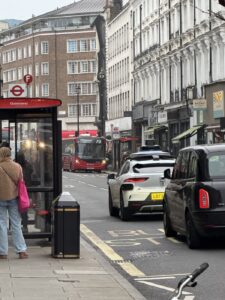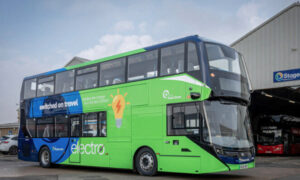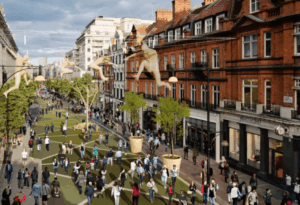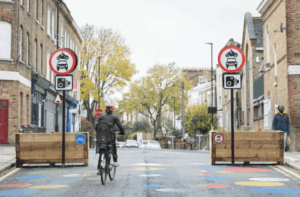A new report released today reveals that the scrappage schemes, launched by the Mayor of London, Sadiq Khan, to help Londoners prepare for the Ultra Low Emission Zone (ULEZ) and its expansion last year, were successful in reducing emissions and car ownership and increasing the use of public transport.
It is estimated that the Mayor’s scrappage schemes have helped cut toxic emissions in the capital – removing a total 140 tonnes of nitrogen oxides, 0.5 tonnes of PM2.5 and 2,000 tonnes of CO2 from the capital’s air[1]. The CO2 saving is the equivalent to that generated by a lorry travelling 1.5 million miles.
The evaluation survey of the Car and Motorcycle Scrappage Scheme also shows it was effective in reducing vehicle ownership, with a third of respondents not purchasing a replacement vehicle, and 22 per cent saying they no longer have access to a vehicle in their household.
The scheme has also helped increase public transport use, with survey respondents reporting a decrease in car travel and an increase in walking, cycling and public transport use.[2]
As part of Mr Khan’s bold action to tackle dirty air across the capital and to help Londoners prepare for ULEZ in central London in 2019, its expansion to cover inner London and the Low Emission Zone tightening of standards in 2021, the Mayor created three targeted scrappage schemes. They provided financial assistance for small businesses, charities, Londoners on lower incomes and disabled Londoners to scrap their older, more polluting vehicles and switch to cleaner models and modes of transport.
Launched across 2019 and 2020, with investment of over £61 million from the Mayor, the evaluation of these schemes is published today and demonstrates that they have been incredibly popular and effective, helping people to avoid having to pay the ULEZ charge as well as removing over 15,200 older, more polluting cars, motorcycles, vans, minibuses and heavy vehicles from London’s roads.
Following the success of the schemes in London, Sadiq is urging the Government to learn from London’s approach and to create a targeted national scrappage fund to enable even more cities across the country to implement Clean Air Zones more effectively and help more drivers across the UK to change to cleaner vehicles and greener modes of transport.
The Mayor of London, Sadiq Khan, said: “In London, we’re taking bold action to address the triple dangers of air pollution, the climate emergency and congestion and the threat they pose to the health and livelihoods of Londoners.
“This report today shows that scrappage schemes are both effective and popular – helping Londoners scrap their older, polluting vehicles and switch to walking, cycling or public transport, joining a car club or switching to a cleaner vehicle. I urge the Government to follow London’s lead and help clean our filthy air by supporting a targeted national vehicle scrappage fund that will help motorists across the UK to ditch their polluting cars.
“The Ultra Low Emission Zone and the scrappage schemes have already helped to cut pollution by half in central London, but every Londoner has a right to breathe clean air. That’s why we have consulted on proposals to expand the ULEZ London-wide – in order to save lives and continue building a better, greener, healthier London for everyone.”
Christina Calderato, TfL’s Director of Strategy and Policy, said: “The ULEZ is a vital part of tackling the public health emergency caused by toxic air pollution, with millions of Londoners now breathing cleaner air. We are pleased to have been able to help small businesses, charities, those on low incomes and disabled people make the green transition as a result of the Mayor’s scrappage scheme. Not only has the scheme taken more than 15,000 older, more polluting vehicles off the road, it has led to Londoners adopting more environmentally friendly travel choices, with a third of car and motorcycle scrappage grant recipients not buying a new car. There is also clear evidence that there have been significant increases in people walking, cycling and using public transport amongst those who received a grant.”
Stephen Edwards, Chief Executive, Living Streets: “It’s fantastic to see that Londoners are walking more and that toxic emissions are reducing as a result of the scheme. Fewer vehicles on the road also means less congestion for those who must use their cars to work or get around. The Mayor’s Scrappage Scheme is a great example of the ways we can start to shift people towards cleaner and greener ways to travel, which will be vital if we’re to get to Net Zero.”
























